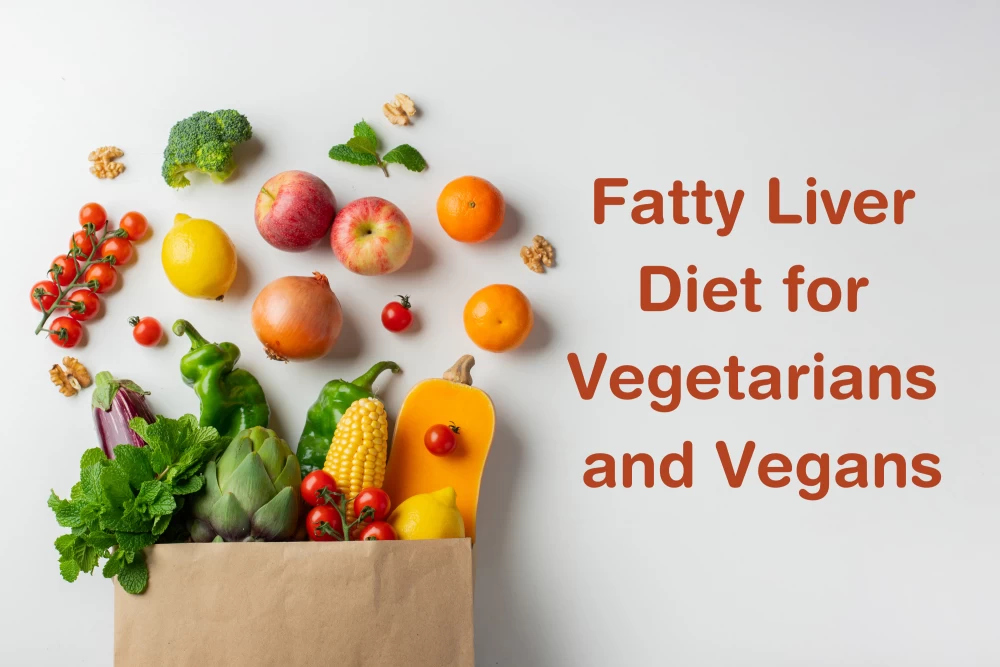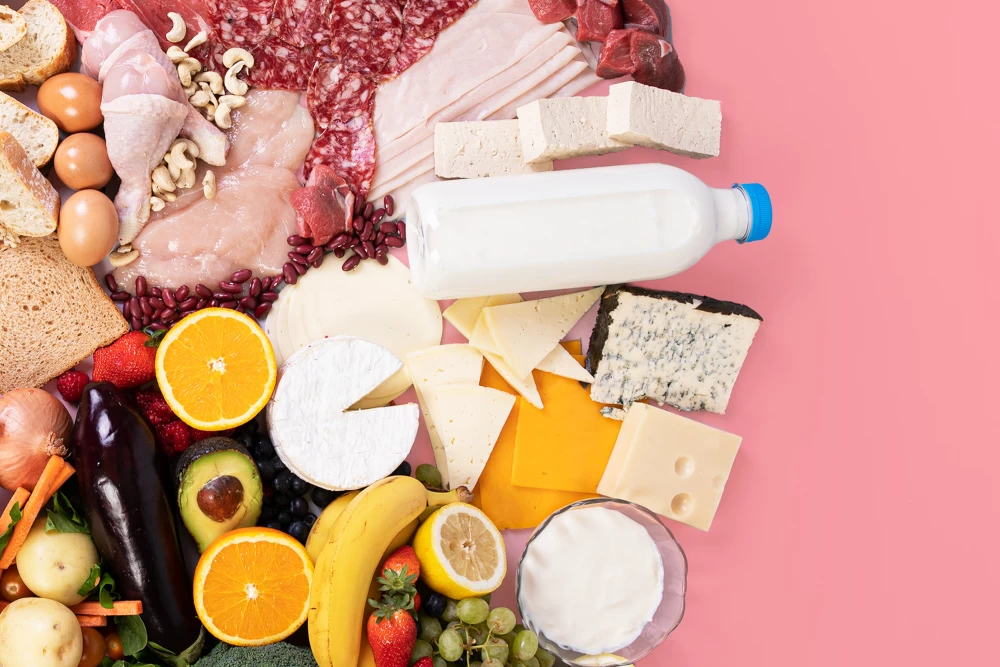
- 20th March 2023
Table of Contents
What is Fatty Liver?
For vegetarians and vegans with fatty liver, a plant-based diet can help improve liver health. Fatty liver disease occurs when excess fat accumulates in the liver cells, leading to inflammation and potential damage over time. By reducing or eliminating animal fats from their diet, vegetarians and vegans can reduce their intake of saturated fats that contribute to fatty liver disease. Incorporating whole grains, legumes, nuts, seeds, fruits and vegetables into the diet is beneficial for those with fatty liver disease. These foods are high in fiber which helps to reduce blood sugar levels and insulin resistance - two factors that contribute to the development of fatty liver disease. Additionally, consuming omega-3 rich foods like flaxseed oil or chia seeds can help reduce inflammation in the body. Overall a well-planned vegetarian or vegan diet can be effective for managing symptoms of fatty liver disease by providing essential nutrients while also reducing harmful saturated fats commonly found in animal products.
Dietary Recommendations for Vegetarians
For vegetarians and vegans with fatty liver disease, it is important to follow a diet that is low in saturated fat and high in fiber. Consuming plant-based foods such as fruits, vegetables, legumes, whole grains, nuts and seeds can provide the necessary nutrients for optimal health. Additionally, healthy fats found in avocados and olive oil can be incorporated into the diet. One recommended dietary approach for those with fatty liver disease is a plant-based Mediterranean diet. This involves consuming primarily plant-based foods while limiting red meat, dairy products and processed foods. The Mediterranean diet emphasizes healthy fats such as those found in fish, nuts and olive oil. It is also important for vegetarians and vegans to ensure adequate protein consumption through sources such as beans, lentils, tofu and tempeh. Vitamin B12 supplementation may also be necessary for those who do not consume animal products. By following these dietary recommendations along with regular exercise and weight management strategies, individuals with fatty liver disease can improve their condition and overall health outcomes.

Dietary Recommendations for Vegans
If you're a vegan or vegetarian with fatty liver disease, you may wonder how to get the nutrients you need from your plant-based diet without worsening your condition. First and foremost, it's important to consume a variety of whole foods including fruits, vegetables, legumes, nuts, seeds and whole grains. This ensures that you are getting all the necessary vitamins and minerals for optimal health. When it comes to healthy fats for vegans with fatty liver disease, avocados and raw nuts such as almonds, walnuts and Brazil nuts are great options. Additionally, incorporating omega-3 rich sources such as flaxseeds or chia seeds into your diet can be beneficial. It is also recommended to limit or avoid highly processed foods including refined carbohydrates like white breads and sugar-sweetened beverages. Lastly, alcohol intake should be avoided completely in order to prevent further damage to the liver. By following these dietary recommendations for vegans with fatty liver disease alongside regular exercise, a plant-based lifestyle can still provide all the necessary nutrients for overall health while supporting liver function.
Foods to Eat
If you are following a vegetarian or vegan diet and have been diagnosed with fatty liver disease, you may be unsure of what foods to eat. Luckily, there are plenty of plant-based options that can help support your liver health. Firstly, focus on incorporating more fiber-rich foods into your diet. This includes fruits, vegetables, legumes, and whole grains like quinoa and brown rice. These foods will help reduce inflammation in the liver and improve digestion. Secondly, make sure you are getting enough protein from plant sources such as tofu, tempeh, lentils and beans. Protein is essential for repairing damaged liver cells and supporting overall liver function. Lastly, incorporate healthy fats into your diet such as avocados, nuts and seeds. These will not only provide energy but also protect the liver against damage caused by free radicals. By making these dietary changes along with regular exercise and plenty of water intake, you can improve your fatty liver condition while sticking to a vegetarian or vegan lifestyle.
Foods to Avoid
As a vegetarian or vegan seeking to maintain good liver health, it's important to know which foods to avoid in your diet. One of the most significant culprits is alcohol. Even small amounts of alcohol can damage the liver and lead to the development of fatty liver disease. In addition to alcohol, you should also steer clear of high-fat dairy products like cheese and butter. These foods are high in saturated fats that can contribute to excess fat buildup in the liver. Similarly, processed snacks like chips and crackers should also be avoided due to their high levels of trans fats. Finally, it's important for vegetarians and vegans with fatty liver disease to limit their intake of added sugars found in sweets, pastries and canned fruits as well as refined carbohydrates such as white breads and pastas. All these food items spike blood sugar levels leading our body towards insulin resistance which negatively affects the liver function.
Tips for Success
1. Incorporate plant-based protein sources: As a vegetarian or vegan, it can be challenging to consume enough high-quality protein that supports liver health. However, there are plenty of plant-based protein options like lentils, legumes, tofu, and tempeh that you can add to your diet. These foods are low in fat and calories but rich in fiber, vitamins, and minerals.
2. Limit processed foods: Highly processed foods like fried snacks, fast food items can contribute to fatty liver disease by increasing the amount of unhealthy fats in your body. Instead of consuming these types of food items regularly, try incorporating fresh fruit and vegetables into your daily diet as they contain natural antioxidants which help cleanse the liver from toxins.
3. Stay hydrated: Drinking enough water is essential for good liver health as it helps flush away toxins from the body through urine output. Make sure you drink at least 8-10 glasses of water every day along with other beverages like herbal teas as they are also known for their cleansing properties.
Incorporating these dietary habits into your routine can help improve overall health while reducing the risk of developing fatty liver disease on a vegetarian or vegan diet plan.
Conclusion
In conclusion, a well-planned vegetarian or vegan diet can be effective in managing fatty liver disease. The key is to focus on nutrient-dense foods that are low in saturated and trans fats, while also ensuring adequate protein intake. Plant-based sources of protein include legumes, nuts, seeds, tofu and tempeh. Additionally, it's important to limit processed foods and refined carbohydrates as these can contribute to insulin resistance which exacerbates fatty liver disease. Instead, aim for whole grains like quinoa and brown rice as well as plenty of fruits and vegetables. Finally, incorporating regular exercise into your routine can further support healthy liver function by reducing inflammation and improving insulin sensitivity. A combination of aerobic exercise such as brisk walking or cycling along with strength training is ideal. Overall, making dietary changes alongside lifestyle modifications can help improve fatty liver disease outcomes in vegetarians and vegans.














